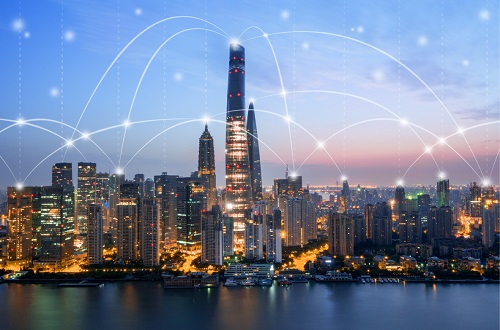The concept of “Internet of Things” was officially proposed in 2005. In 2009, China proposed “Perception of China”. The status of the Internet of Things was further enhanced and was officially listed as one of the country’s five emerging strategic industries. In China, the level of attention paid to the Internet of Things is unmatched in the United States, the European Union, and other countries. Naturally, it is inevitable that the Internet of Things will penetrate into all walks of life, and the application of Internet of Things technology in the lighting field is inevitably “unstoppable.”


The Internet of Things technology is like a catalyst, promoting the accelerated transformation and upgrading of the lighting industry. Whether it is indoor home lighting or outdoor commercial lighting, they are growing explosively. Therefore, there are always professionals predicting which year the Internet of Things nodes will be. How many billions does it reach? In fact, a large part of this quantity level is composed of lighting nodes. Just imagine, in a city, in addition to buildings, streetlights should be spread widely and regularly. Treat each streetlight as a “object” node, connect each streetlight in pairs, and the network chain formed between them will cover the entire city. The mesh cover of urban buildings means that smart urban development will rely on lighting.
Therefore, in the field of lighting, a lamp is a “thing”, and then connecting it to a virtual network through an Internet communication technology is the simplest implementation of lighting based on Internet of Things technology. What exactly does the lighting upgrade based on Internet of Things technology bring to this field? After analyzing all aspects, we can basically summarize the following benefits:
1. Economic benefits: save electricity and money. This is especially noticeable in urban street lighting. Road lighting is the main power-consuming facility in municipal facilities. Therefore, road lighting has become an important breakthrough in green energy saving and environmental protection. Each lighting node is based on physical network technology. After being connected to the Internet, its lighting can be controlled, such as turning on and off lights, dimming, etc., which directly results in increased energy saving and the life of the lighting source.
2. Social benefits: Improve the image of the city, beautify the living environment, and provide people with a safer and more comfortable lighting environment. In the early days, street light failures could not be maintained in time. There would always be a corner in the city without light, and the lighting in homes and buildings would be either bright or completely off. Now with the introduction of Internet of Things technology, outdoor lighting failures in cities can be discovered in time, and homes can be adjusted according to the ambient temperature. Color tone, adjust the light according to people’s activities. This series is all the social benefits brought by Internet of Things technology.
3. Management benefits: The network access of street light nodes enables the management of massive data, which only requires a computer and a mobile phone. The level of street light management in the entire city has therefore been improved, and management staff are freed from complicated inspection work. Reduce work intensity and operation and management costs. As far as the home is concerned, the lighting in each room can be installed in a mobile phone, and management such as turning on lights, dimming, and color adjustment can be easily realized.
4. Environmental benefits: Internet of Things technology is a technology based on electrical energy. It is characterized by low energy consumption, so there is no high-frequency interference to the urban power grid and no strong electromagnetic wave pollution to the urban environment. It is in line with the development trend of environmental protection in today’s society. .
Now, with the development of society and the continuous improvement of people’s lighting requirements, intelligent lighting systems are also developing rapidly in the direction of structural diversification and application expansion. The demand for the introduction of Internet of Things technology in the lighting field is irresistible.